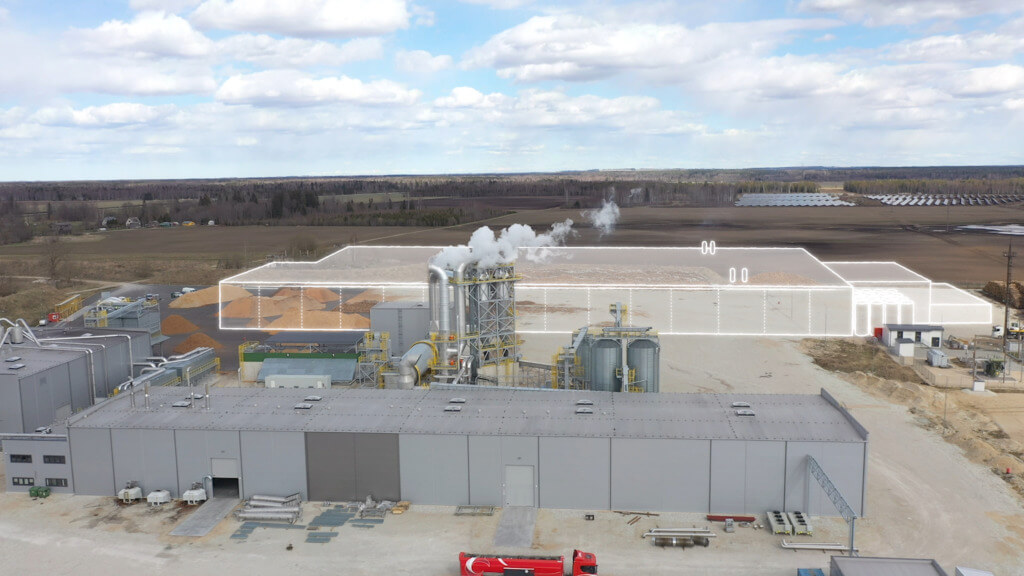

March 27, 2024
Perpetual Next - leading builder, owner and operator of production facilities that retrieve carbon and gas from organic waste - and US-based TSI - leading manufacturer for the wood processing industry - have signed an agreement to produce the world's largest carbonisation reactors, which will quadruple bio carbon production per reactor. The first two XXL Tor-reactors will be built and installed combined with Perpetual Next's knowledge and know-how and will have a combined annual capacity of 160 thousand tons (160 million kilograms). This new, larger reactor has now been extensively tested by TSI and can be implemented for the expansion of the Perpetual Next Baltania production facility. This also marks an important step towards large-scale bio methanol production. The agreement with TSI envisages a total of eight torreactors®*, which in addition to further expansion of Baltania will be provided for Perpetual Next's bio methanol projects in Europe and the U.S. Perpetual Next and TSI have been collaborating successfully for more than five years.
Bio methanol can serve as a feedstock for the production of chemicals that are currently all derived from oil and gas. With the production of bio methanol, based on its bio carbon, Perpetual Next is helping the chemical industry become more sustainable. Perpetual Next also sees a growing demand for bio methanol from the maritime sector. The aim is for the bio methanol production facility to become operational in 2027 with an annual production capacity of 220,000 tons of bio methanol.
Bio methanol blueprint
Perpetual Next currently owns a bio carbon factory in Estonia. The expansion of the bio methanol plant will be developed on the extensive 250,000 m2 building plot owned by Perpetual Next. Bio methanol is produced via gasification of bio carbon. Perpetual Next, after expanding its current production in Estonia, will also supply the bio carbon to the bio methanol plant at the same location. The realization of the bio methanol production facility with an annual production capacity of 220,000 tons of bio methanol involves a project financing of 450 million euros. The first buyers of the bio methanol have already come forward.
The project with the name "Baltanor" follows the same blueprint that Perpetual Next is currently using to develop Deltator/Deltanor, the single-site bio carbon and bio methanol production facility in Delfzijl, NL.
Erik Huis, Chairman & CEO Perpetual Next Bio carbon: "As we stated in our earlier announcement on December 7, with Baltanor we are responding to the growing demand for bio methanol from the chemical and maritime industries. With the capacity expansion we will realize together with TSI, we are able to achieve a huge production volume that will make us a major player in the bio methanol market in one fell swoop. This is an important step in our mission to produce and market bio commodities by volume."
Perpetual Next produces bio carbon from woody waste streams, based on carbonization technology. Based on the thermochemical carbonization process, organic wood waste is converted into high-quality carbon with applications for the steel, cement and chemical industries. Bio carbon can also be used as feedstock for a gasification process. Gasification is a proven technology that converts carbon-based feedstocks such as coal, and now bio carbon, into synthesis gas (syngas for short), which can be supplied to various industries as bio commodity. The syngas can also be converted into bio methanol or other liquid or gaseous feed stocks and fuels.
Growing demand for bio methanol
In July 2023, the IMO (United Nations - International Maritime Organization) adopted the IMO strategy to reduce greenhouse gases from ships. This has now resulted in a global order book of more than 100 ships running on bio methanol. Combined with the growing demand for bio methanol from the chemical sector, the demand for bio methanol is expected to increase from about €120 million in 2022 to €2 billion in 2031. Future demand far exceeds current production capacity and it is clear that production capacity for the bio methanol feedstock must be scaled up rapidly.
*Torreactor is a registered trademark of TSI